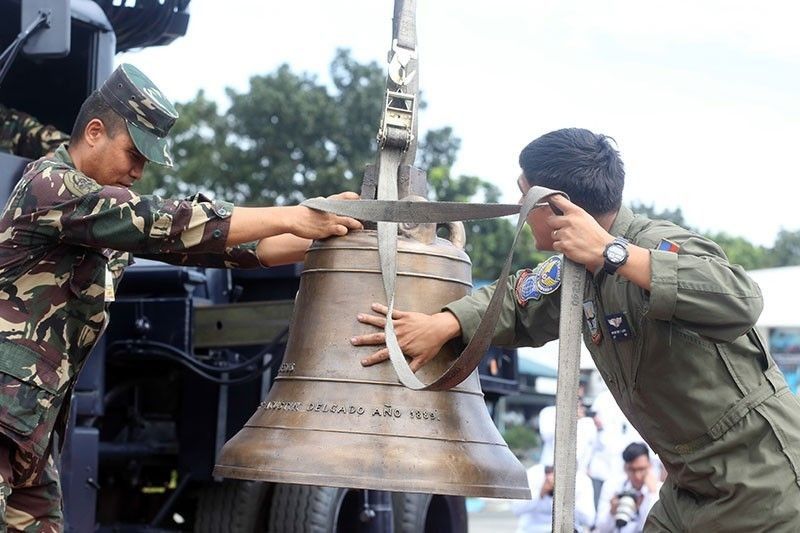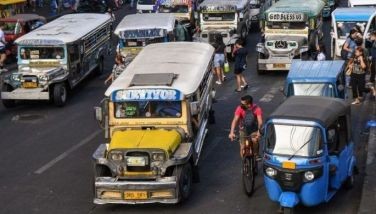Makabayan bloc calls for US apology for abuses during Philippine-American War

MANILA, Philippines — Lawmakers from the Makabayan bloc filed a resolution on Monday urging the US government to apologize for the lives lost and communities destroyed by its soldiers during the Philippine-American War.
This comes days after the US and the Philippines agreed to designate four more facilities in strategic areas under the Enhanced Defense Cooperation Agreement (EDCA), a deal that gives US troops access to nearly twice more Philippine military bases and camps. The agreement allows for prepositioning of US military equipment for, among other things, humanitarian assistance and disaster relief.
The House resolution, which is unlikely to be adopted by the House, calls on the US government to apologize and "take responsibility for the atrocities committed by its armed forces against the Filipino people during the Philippine-American War" in light of the government’s initiatives to expand the presence of US military forces in the Philippines.
"This EDCA and its companion agreements, including the Visiting Forces Agreement, are tools with which the US uses the Philippines as a staging ground for its military and economic aspirations in the Asia Pacific region, and thereby acts as a modern colonizer," the resolution read.
Before adding four new EDCA sites, five existing sites were already identified in Cebu, Cagayan de Oro, Nueva Ecija, Palawan and Pampanga for use by US troops.
The Philippines has a mutual defense treaty with the US while the Visiting Forces Agreement and EDCA allow American troops to come to the Philippines for joint training and for technical support.
Casualties of Philippine-American War
The House resolution was authored by Reps. France Castro (ACT Teachers party-list), Raoul Manuel (Kabataan party-list) and Arlene Brosas (Gabriela Women’s Party).
Castro said: "It has been 124 years since the start of the Philippine-American War where the American military targeted whole populations throughout the archipelago, displacing whole communities and interning them in concentration camps; employing scorched earth tactics that destroyed homes, crops, food stores, livestock, and water supplies."
Citing a "conservative" estimate, Castro added that at least 200,000 civilians died while 34,000 Filipino soldiers were killed during the war.
"The conduct of US forces during the Philippine-American War constitute war crimes that violate fundamental principles of international humanitarian law, such as the distinction between combatants and non-combatants and the concepts of military necessity and proportionality," Castro said.
"But even with all these, the US government has not even issued a formal apology to the Filipino people and continues to use our country as a launching pad for its geopolitical objectives in the Indo-Pacific."
Castro also called on the US government to open all its agreements with the Philippines for scrutiny, besides issuing a formal apology to Filipinos.
RELATED: Balangiga bells return home
This is not the first time that the Philippine-American War was brought up in the context of ties with the US and the presence of their troops in the Philippines.
President Rodrigo Duterte in 2016 cited atrocities by US troops as a prelude to the shift to what he said was an "independent foreign policy" and to tell US troops to "leave Mindanao."
Duterte, who had been critcized for his stance on the maritime dispute with China over the West Philippine Sea, brought up the massacre of about 1,000 Moros in Bud Dajo in Sulu in 1906. "It's (Bud Dajo massacre) a lingering skeleton...which removes moral ascendancy of those criticizing the Philippines for killings," the Palace said then.
In his 2017 State of the Nation Address, Duterte demanded the return of church bells that US troops took from the town of Balangiga on Samar Island in 1901. The bells were taken after a US general ordered his troops to turn the island into a "howling wilderness" in response to a Filipino attack on the 9th US Infantry Regiment.
President Ferdinand "Bongbong" Marcos Jr. has sought warmer ties with the US — saying in New York last September that he "cannot see the Philippines in the future without having the United States as a partner" — while maintaining good relations with China.
READ: Philippines' balancing act: Independence while maintaining 'complex' relationships
US military’s strategic Asia expansion
The expansion of military presence in the Philippines also put the Asia Pacific Research Network (APRN) on edge, citing how the return of US bases could undermine Philippine sovereignty and threaten Filipinos' human rights.
"Although (US Defense Secretary Lloyd Austin’s) claims that EDCA is geared towards building the Philippines’ capabilities to 'defend their own sovereignty’ … this will only undermine Philippine sovereignty and escalate the human rights situation in the country," the statement from APRN read.
"Philippine and US officials present EDCA as an added safeguard against possible conflict emerging from the West Philippine Sea or the Taiwan Strait. Despite these claims, nowhere in the agreement does it mention that the US is obliged to aid the country in times of conflict," the statement added.
RELATED: Joint patrols to benefit fishermen – senators
APRN Chairperson Azra Talat Sayeed criticized the US military's strategic expansion to more locations in Asia, the Philippines included, which it said coincides with the US government's "Pivot to Asia" strategy to challenge China's economic and political dominance.
"To this end, the US is willing to lie through their teeth so long as they reestablish a strategic launchpad of imperialism in the region with the hopes of containing China,” Sayeed said
Sayeed also said that the new EDCA sites would "present a danger that extends far beyond (the Philippines') borders, with the advanced military equipment, such as planes, drones, ships, and arms, having the potential to reach and impact neighboring countries."
- Latest
- Trending





























